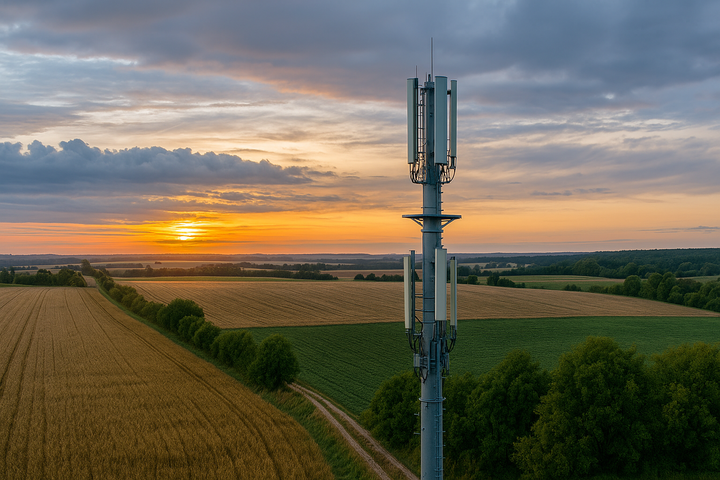The Disappearing Ladder: Trump’s DBE Rollback Abandons Small Businesses

A Calculated Dismantling
President Trump’s January executive order dismantling key Biden-era diversity and equity mandates didn’t just make headlines. It sent shockwaves through communities that rely on fair access to public contracting. Critics argue that the rollback threatens the “infrastructure of opportunity” for small, historically excluded businesses. Now, the federal Disadvantaged Business Enterprise (DBE) program, which helps women- and minority-owned businesses compete for federally funded transportation contracts, faces elimination under the Trump administration’s policy agenda. That agenda views race- and gender-conscious programs as unconstitutional.
“The Trump administration won’t stick up for minority- and women-owned businesses, so we will,” wrote Democracy Forward, a legal nonprofit representing a coalition of underrepresented federal contractors in a recent court case. “This coalition intervened in this case because of what’s at stake, not just for these businesses, but for the longstanding principles of redressing past discrimination.”
In Eastern Washington, the implications are immediate and severe. For decades, the Washington State Department of Transportation (WSDOT) has relied on DBE goals to ensure fair competition on major public projects, from highway expansions in Spokane to transit improvements in the Yakima Valley. Those contracts didn’t just build infrastructure. They built ladders. They opened doors to disadvantaged businesses in construction, engineering, and logistics to grow, hire, and contribute. Now, as the Trump administration moves to dismantle those protections, the very rungs of opportunity that lifted so many are being kicked away. Advocates warn: eliminate the DBE program, and you don’t just stall progress. You push a generation of small business owners back to the margins.
What the DBE Program Really Does
The Disadvantaged Business Enterprise (DBE) program sets a national goal of awarding 10 percent of federal transportation contracts to small businesses owned by socially and economically disadvantaged individuals. This specifically includes certain racial and ethnic groups and women. In Washington State, certification is managed by the Office of Minority and Women’s Business Enterprises (OMWBE). WSDOT sets project-specific DBE participation goals and offers training and technical support to help eligible businesses compete.
These aren't handouts. They’re equalizers. The DBE program was designed because access to capital, networks, and contract pipelines has never been equitable in this country.
A Judicial Strike and Silence from Spokane
In September 2024, a single federal judge in Kentucky, Gregory Van Tatenhove, ruled that DBE’s use of race and gender presumptions violated the Constitution. It was only a matter of time. On May 28, 2025, the Trump administration responded by filing a motion for a nationwide consent decree. Based on Judge Van Tatenhove’s ruling, the motion seeks to end the program’s core provisions entirely. If approved, it would eliminate the program’s race- and gender-based criteria, potentially redirecting 37 billion dollars in contracts away from historically disadvantaged businesses.
What did Washington State Congressman Michael Baumgartner say?
Nothing.
That silence is deafening coming from a congressman who just months ago railed against “unelected judges” issuing sweeping national injunctions. In March 2025, Baumgartner told a Spokane crowd:
“A single judge shouldn’t dictate national policy.”
Except, apparently, when that judge is dismantling civil rights programs.
Why It Matters in Eastern Washington
Spokane, Walla Walla, Colville, and Pullman are home to hundreds of small businesses eligible for DBE support. Many are owned by single mothers, minorities, and immigrants. They rely on state-managed, federally funded WSDOT contracts to grow. When those contracts shrink or disappear, so does access to capital and scale.
The University of Washington’s 2025 study on loan disparities confirmed what these businesses already know: small-business owners who are Black, Latino, Asian, or women pay higher interest rates than their white male counterparts, even when risk is equal. In Eastern Washington, where rural capital is already limited, programs like DBE aren’t perks. They are lifelines.
• Black business owners: 3.09 percentage points higher
• Latino business owners: 2.91 points higher
• Asian business owners: 2.88 points higher
• Women business owners: 2.38 points higher
(These disparities persist even after controlling for credit risk.)
Baumgartner’s Choice
Rep. Baumgartner sits on the House Judiciary Committee, which oversees constitutional protections. He also serves on the House Committee on Education and the Workforce, where economic equity is central to its mission.
He could defend DBE-certified small businesses in his district if he wanted to.
He could push back against judicial overreach when it threatens women and minority contractors.
He could, at the very least, speak.
Instead, he says nothing.
The Real Story
This isn’t about bureaucracy. It’s about power. Who gets to build roads, provide services, and benefit from public dollars. Killing the DBE program is a calculated move to erase equity from infrastructure investment. And Baumgartner’s silence makes him complicit.
Eastern Washington can’t afford to lose another path to opportunity. The voters deserve a representative who doesn’t just talk about fairness, but fights for it.


